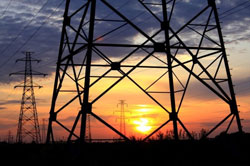Energy, EU – Baltic States, Legislation, Lithuania
International Internet Magazine. Baltic States news & analytics
Thursday, 29.01.2026, 19:19
Lithuania’s government: we are more energy-dependent than 20 years ago
 Print version
Print version |
|---|
"LEO LT is an example of non-transparent cooperation between the Government and private sector. Lithuanian electric power system is integrated into the system of the former USSR, and local power generation sources are fitted to use the imported fuel (natural gas). There are no links with other EU countries. The framework of LEO LT and Lietuvos Energija does not conform to the requirements of the EU Third Energy Package. The laws on electric power provide legal conditions for undue increases in electricity rates for customers," the situation in which the present Government came to work is presented in grim colours, informs LETA, referring to ELTA.
According to the report, upon the closure of the Ignalina Nuclear Power Plant, we became even more energy-dependent than 20 years ago, in 1990. Probably, a certain exception can be seen in the oil sector, where the possibilities of self-sufficiency in oil and its products have increased significantly.
One of the major reasons why the situation in the energy sector is still discouraging is the fact that strong companies, that have monopolized the market and that are dictating the conditions not only to the customers but also to the state, prevail," says the document.
The Government announced that upon the establishment of Energy Ministry, the situation began improving substantially – the abstract desire for energy independence is turning to concrete projects, the implementation of which not only moved from the dead point, but also started bringing first results.
"In the energy sector in 2009, the focus was on strategic challenges – to ensure smooth functioning of energy sector upon the closure of Ignalina Nuclear Power Plant, to protect consumers from sudden increase in electricity prices, and pave the way for the integration of Lithuanian energy systems into the EU," says the Government report.








 «The Baltic Course» Is Sold and Stays in Business!
«The Baltic Course» Is Sold and Stays in Business!

